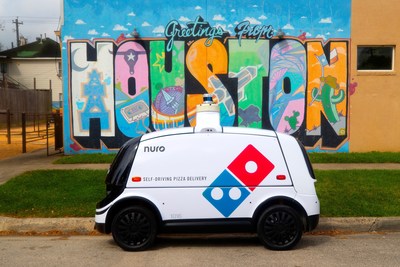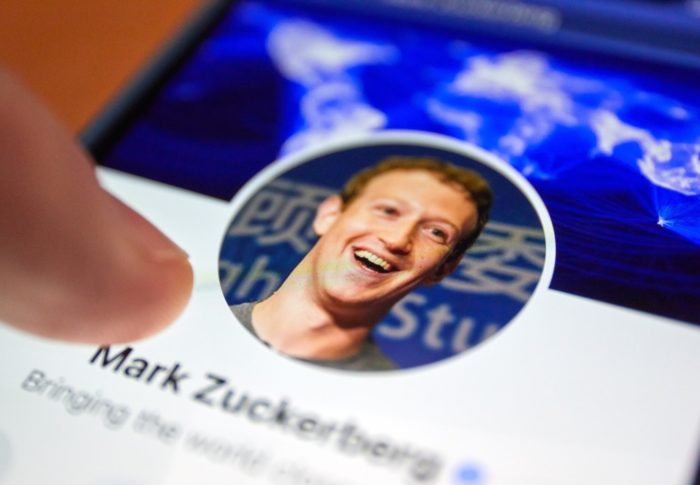1. Good Monday Morning
On Thursday, Earth Day 2021 will be celebrated. The campaign “Restore our Earth” encourages many community initiatives, including cleanups, tree plantings, and reducing plastics in our environment.
Today’s Spotlight is 1,084 words — about a 4 minute read.
2. News To Know Now
Quoted: “I think every Black person in the country has had the experience of being in a photo and the picture turns up either way lighter or way darker. Lighting is one of the primary factors when it comes to the quality of an image. So the fact that law enforcement is relying, to some degree … on really subpar images is problematic.” — attorney Eric Williams, a member of the ACLU of Michigan’s attorney committee, to MIT Tech Review
a) New research published by the University of Southern California found that Facebook’s targeting system discriminates against people based on their gender and racial background. Their study shows that advertisements following traditional stereotypes such as lumberjacks are targeted to skewed audiences even when the advertiser wants to address a broad and racially diverse audience. The researchers also studied LinkedIn employment advertising and found that it was not skewed the same way. (PDF)
b) Google is said to be blocking advertisers seeking videos and channels on YouTube using racial justice keywords including Black Lives Matter while allowing advertisers to use terms regarding white supremacy, according to a story in The Markup. In response to inquiries about the discrepancy, Google blocked the white supremacy terms as well.
c) According to Facebook, its independent oversight board will expand its powers to hear users on the content they want removed from the company’s platforms. Before, people could appeal to the oversight board only for content they wanted restored. (Wall Street Journal)
3. COVID-19 Tech News
Data — Daily Average (7 day trailing)
US Deaths — 750
US Hospitalizations — 45,643
US fully vaccinated — 25.4%
Source
Great Trackers
Overview — Johns Hopkins
Vaccine Distribution — Washington Post
Vaccine Finder — CDC Project
Risk Calculator — Brown
New York Times tracker that allows you to customize a daily email with multiple cities and towns that you’re monitoring: Click here to configure.
Coronavirus & Tech News
Apple, Google Block NHS COVID App Over Privacy – The Guardian
Facial Recognition Beats COVID Mask Challenge – BBC
4. Search Engine News
Google has acknowledged that it will be harder for user-generated content product reviews to rank well based on its new product ranking guidelines. We told you about those changes last week. When Google search exec John Mueller was questioned on Twitter by a user, he went on to say that “Keeping the quality of a UGC site high is hard, I don’t have a simple solution.”
Google and Bing also agreed last week that discontinued products should include a “no index” flag. Bing’s Fabrice Canel told Barry Schwartz that websites offering similar products should include the no-index flag on discontinued versions because “it is a stronger signal” for the crawlers to determine which pages should be ranked lower or not at all.
5. In The Spotlight — Delivery Bot Testing
Deliveries are changing. Chick-fil-A and Dominos are conducting tests in the US while Panasonic is testing in Japan. People can also pick up their orders from “Click and Collect” merchants. eMarketer reports that seven big retailers accounted for more than 60% of click and collect revenue in 2020.
Houston-area customers buying pizza from a Domino’s store will have the option of receiving a delivery from the company’s delivery bot, called R2. Customers can track the bot during delivery and enter the PIN on the touch screen of the pick-up bot to receive their order.
In Japan, Panasonic has begun testing autonomous delivery bots on public roads. The bots will deliver prescription drugs to patients from a pharmacy in Fujisawa City.
Plenty of humans are still getting their own packages. In what was undoubtedly influenced by the pandemic, Walmart alone sold $15 billion worth of products that were picked up by the customer at the store. Other companies with at least $1 billion Click and Collect sales include The Home Depot, Best Buy, Target, Lowe’s and Macy’s.
6. Debunked — Mass Shootings Under Trump
The latest bit of misinformation making the rounds online insists that there were no mass shootings in the U.S. during the Trump administration. The Gun Violence Archive has details on 1,100 mass shootings that occurred in the first three years of the Trump administration. That includes the deadliest mass shooting in U.S. history on October 1, 2017, when a gunman fired into a music festival crowd, killing 61 people and injuring 867.
7. Following Up — Facebook Data Scraping
We wrote two weeks ago about data scraped from Facebook appearing on the dark web and in Clearview AI’s facial recognition database. Facebook has countered with a post that tried very hard to disclaim responsibility, saying in part:
1. LinkedIn and Clubhouse have had their own issues.
2. That’s how search engines are built too.
3. Scraping data violates our terms of service.
4. There are more than 100 employees on the team that monitors this.
5. We’ll never be able to fully prevent all scraping.
In short, it was a horrible post that ended with a section on how to use their privacy controls for your account. Sounds like it was your fault after all. (Facebook post)
8. Protip — Google Chrome’s Helpful New Stuff
A new version of the Google Chrome browser includes the ability to create a link to specific text on a webpage, a new two page PDF preview and toolbar, and the ability to mute all notifications if you’re sharing your screen. (Google announcement)
Screening Room – Mutombo Blocks It!
10. Science Fiction World — Identifying Precancerous Polyps
Medtronic has rolled out GI Genius, an AI medical system that it trained by having the software review thirteen million colonoscopy videos and physician notes. The system is now cleared in the U.S. and Europe to detect precancerous polyps following a colonoscopy. (Wired)
12. Sign of the Times – Spring BBQs




